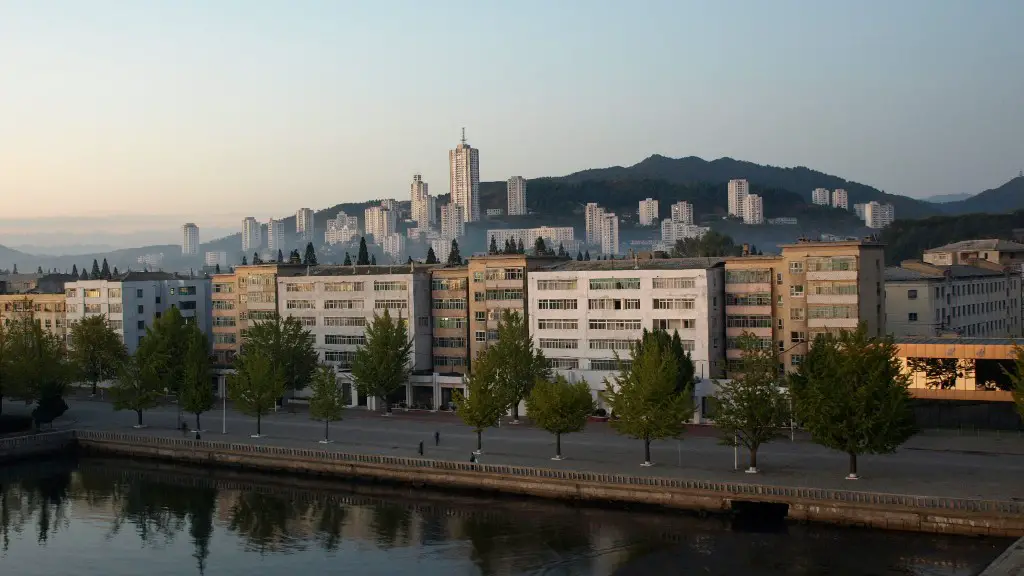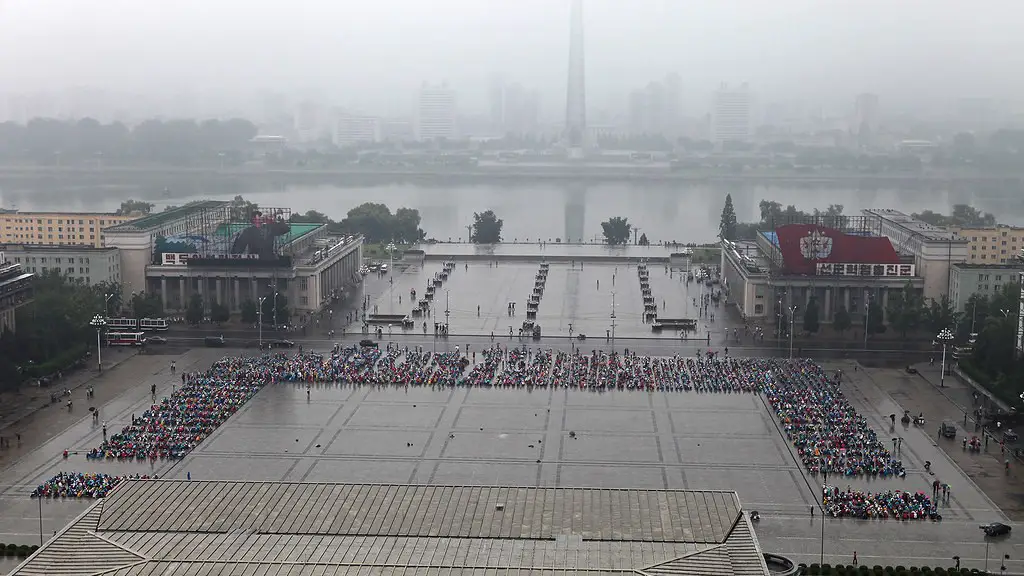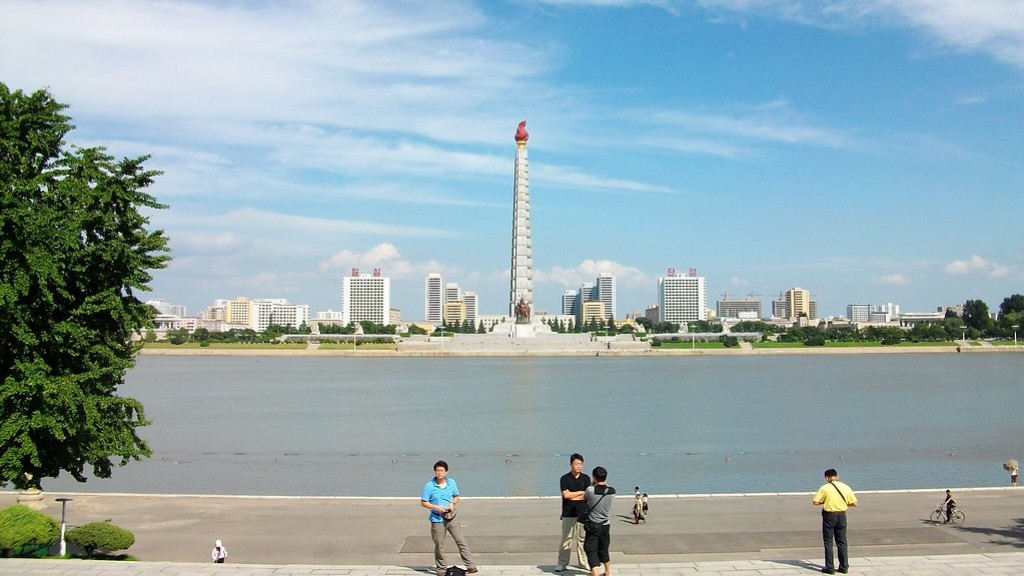Historical Antecedents
North Korea has traditionally held a deep-seated hostility toward the United States which dates back many years. During the Korean War of 1950-1953, North Korea was backed by the former Soviet Union and China whilst the United States deployed a large number of troops and military resources to South Korea. After a protracted and bloody conflict, the two sides signed a ceasefire agreement but they never actually signed a peace treaty, leaving the situation in a state of limbo and technically the two countries are still at war. This unfinished business has been an important source of tension between the two countries ever since then.
The United States has continued its tight economic sanctions against North Korea and on multiple occasions has accused the DPRK of human rights abuses. The United States also began a policy of “strategic patience” which meant that its diplomatic approach towards North Korea was to be largely hands-off in an attempt to convince Pyongyang to denuclearize its weapons of mass destruction.
Domestic Politics
On a domestic level North Korea is an authoritarian state that is highly dedicated to the concept of “juche” or self-reliance and it regards any outside interference in its internal affairs with extreme suspicion. This means that North Korea is deeply suspicious of US involvement in the Korean peninsula, an input which the Koreas deem to be an impediment to the government’s policy of self-reliance.
In recent years there have been regular reports of increased tension between North Korea and the United States because of their wariness towards one another, exacerbated by the fact that North Korea has refused to give up its nuclear weapons. Fears of a potential nuclear conflict between the two countries have become commonplace and some observers believe that the DPRK is highly unlikely to give up its nuclear weapons unless there is a radical shift in how the United States engages with the North Korean government.
Culturally Motivated
Cultural differences also play a role in creating tension between the countries. For example, North Korea places great emphasis on the idea of being an independent nation, with its own ideology and its own way of life. This clashes with US values like free market capitalism, individual liberty and democracy. North Korea’s leaders have traditionally viewed the US as an arrogant superpower, intent on exerting its will on other nations and in their eyes, America has been extremely hostile in its dealings with North Korea.
The United States, on the other hand, views North Korea as an erratic and hostile state that is a threat to global peace and security. US officials have often expressed concern about the North Korean regime’s policies, and its treatment of its own people, and many US-based non-governmental organizations (NGOs) regularly criticize the North Korean government for its human-rights abuses.
Arms Race
The arms race between the two nations has also been a source of tension. North Korea has expanded its nuclear missile capabilities in recent years, and the regime boasts of having developed intercontinental ballistic missiles and thermonuclear warheads. This has left the United States and its allies feeling insecure and threatened.
In response, the United States has attempted to isolate North Korea diplomatically, and has imposed tough economic sanctions on the regime, hoping to force it to abandon its nuclear ambitions. North Korea, however, has viewed these measures as nothing more than an attempt to undermine its regime, and has retaliated with an even more aggressive military buildup.
International Dialogue And Negotiations
This further serves to deepen mistrust between the two countries and has hindered attempts at international dialogue and negotiations. Several weeks of talks in 2018, for example, failed to lead to a deal that would have seen North Korea agree to denuclearize in exchange for economic aid from the United States.
Recently there have been signs of a thaw in relations between North Korea and the United States. The two countries have exchanged letters and a number of high-level meetings have taken place. In June 2018, President Donald Trump met with North Korean leader Kim Jong-Un, and in October 2019, the two men held another summit in the demilitarized zone between the two Koreas.
Economic Sanctions
The United States has also continued its policy of maintaining tight economic sanctions on North Korea. Sanctions have been imposed on North Korea’s military and nuclear programs, as well as on imports of luxury goods and commodities such as oil and coal. These sanctions have had a huge effect on North Korea’s economy, severely limiting the country’s access to foreign markets and investment.
While the sanctions have had little visible effect on the regime, many observers believe that they have contributed to the dire economic situation in North Korea. This has in turn been used as propaganda by the North Korean regime to paint the United States and its allies as hostile powers that are preventing the DPRK from developing and prospering.
Propaganda
Finally, another important factor playing a part in North Korean antipathy towards the United States is the heavy reliance on propaganda by the North Korean regime. North Korea has long used propaganda to glorify its own power and ideology, and to demonize the enemies of the state, particularly the United States. This propaganda is spread through state-controlled media outlets and state-run schools and universities, and it has been hugely successful in creating a deep-seated hostility and mistrust towards the US amongst North Koreans.
Supporting the North Korean Regime
The United States has also done much to support the North Korean regime in recent years. Through the Trump administration, the US has provided millions of dollars in humanitarian aid to the country, including food and medical supplies.
The US also recently signed a deal with the North Koreans to open up an embassy in Pyongyang in an effort to improve diplomatic ties between the two countries. Finally, the United States has also moved to reschedule debt payments to North Korea.
Internal Pressures
A further factor that contributes to the strained relationship between North Korea and the United States is the internal pressures the DPRK faces. In an effort to distract its citizens from their economic woes and stave off any potential unrest, the North Korean government has often resorted to violence and fiery rhetoric which is often directed at the United States.
These tactics are often used by the North Korean regime as a way of diverting attention away from the regime’s own problems and inadequacies, and onto a shared “enemy” in the US. This fearmongering and sabre rattling often serves to whip up anti-American sentiment in North Korea, contributing to the already tense relationship between the two countries.
Outside Influence
In addition to the above factors, North Korea is also suspicious of US or Western involvement in the Korean peninsula, particularly from the US or from countries like Japan. This is because North Korea believes that outside interference could threaten the stability and sovereignty of the state.
The United States, meanwhile, has been vocal in its support of South Korea and is a steadfast ally of the country. This naturally leaves North Korea feeling threatened and has been yet another source of tension between the two countries.
External Pressures
Finally, there are a number of external pressures that contribute to the strained relations between North Korea and the United States. These include the presence of the US military in South Korea and the regularly conducted drills between the two countries.
North Korea views these drills and military exercises as being provocative in nature, and as an attempt to intimidate the DPRK and infringe upon its sovereignty. In response, North Korea has increased its own military presence near the demilitarised zone and has issued threats of military action against South Korea and the United States.


